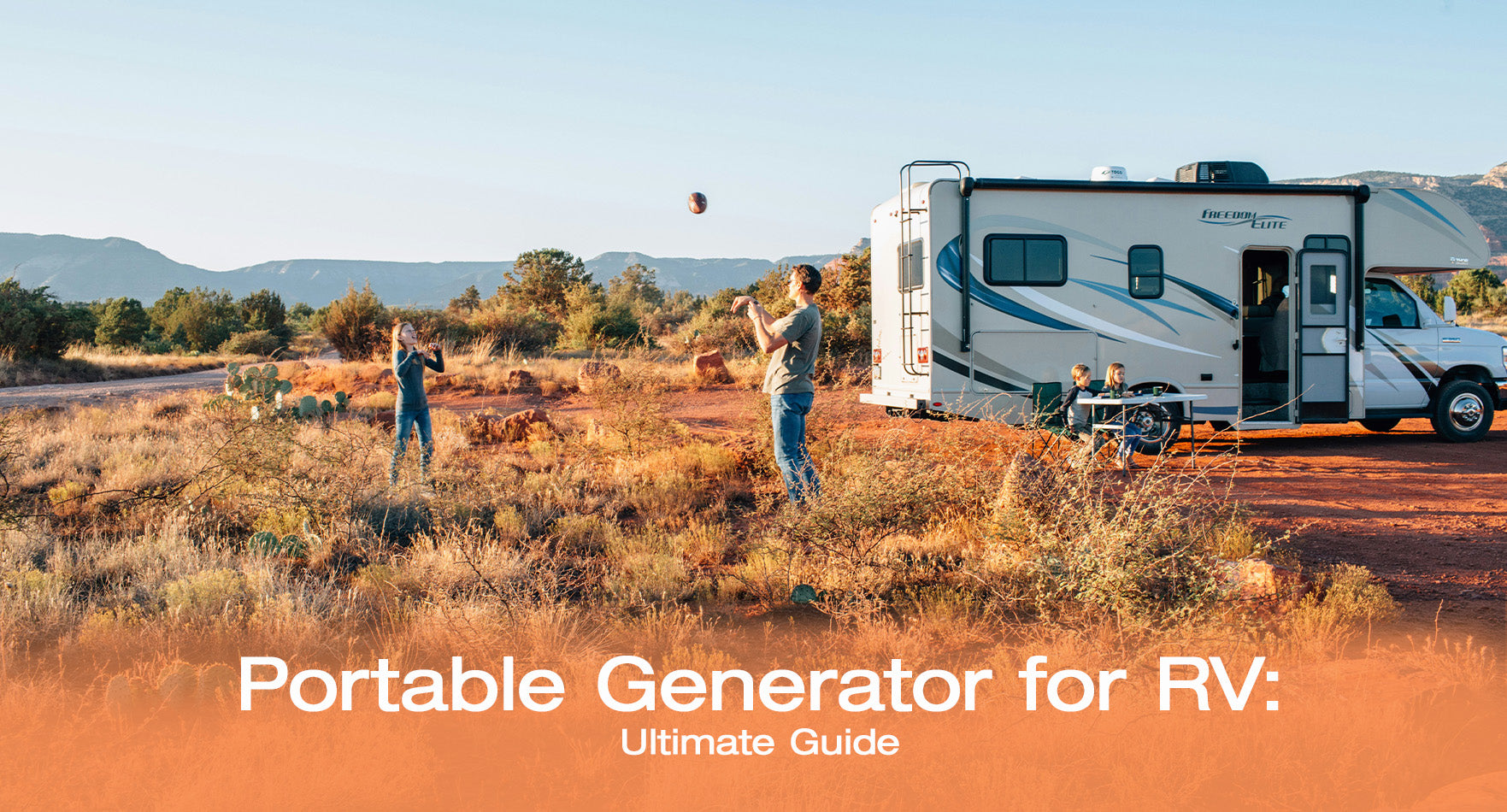Taking your RV on the road opens up a world of adventure and freedom. However, having a reliable power source is essential for a comfortable and enjoyable trip. A portable generator for your RV can provide the electricity needed to run appliances, charge devices, and keep the lights on. Here's a comprehensive guide to help you understand the benefits of portable generators for RVs and how to choose the best one for your needs.
Benefits of a Portable Generator for RVs
1. Power Independence
A portable generator provides power independence, allowing you to camp off-grid without sacrificing the comforts of home. Whether you're in a remote national park or a secluded beach, a generator ensures you have access to electricity.
2. Running Essential Appliances
With a portable generator, you can run essential RV appliances like the air conditioner, refrigerator, microwave, and television. This is especially important during extreme weather conditions or when you need to keep food fresh.
3. Charging Devices
Keep your smartphones, laptops, and other electronic devices charged and ready to use. A portable generator ensures you stay connected, even in remote locations.
4. Versatility and Convenience
Portable generators are versatile and can be used for multiple purposes beyond RVing, such as powering tools, outdoor events, or as a backup power source at home.
Key Considerations When Choosing a Portable Generator for Your RV
1. Power Output
Determine the total wattage needed to run your RV appliances. Make a list of all the devices you plan to use and their wattage requirements. Ensure the generator you choose can handle both the starting watts (surge power) and running watts (continuous power).
2. Fuel Type
Portable generators typically run on gasoline, propane, or diesel. Consider the availability and convenience of the fuel type when choosing a generator. Propane generators are popular for RVs due to their clean-burning nature and easy storage.
3. Noise Level
Generators can be noisy, which might disrupt the peace of your camping experience. Look for models designed to operate quietly, often referred to as "quiet" or "inverter" generators. These models are designed to minimize noise and are ideal for use in campgrounds.
4. Portability and Weight
Since space is limited in an RV, choose a generator that is compact and easy to transport. Consider the weight and ensure it's manageable for you to move and store. Some models come with wheels and handles for added convenience.
5. Run Time and Fuel Efficiency
Check the generator's run time on a full tank of fuel. Longer run times mean fewer refueling stops, which is more convenient during extended stays. Fuel efficiency is also important to reduce the overall cost and frequency of refueling.
6. Ease of Use and Maintenance
Opt for a generator with user-friendly features such as electric start, clear controls, and easy access for maintenance. Regular maintenance is crucial to ensure the generator's longevity and reliable performance.
Top Features to Look For
- Inverter Technology: Provides clean, stable power suitable for sensitive electronics.
- Multiple Outlets: Ensure the generator has enough outlets to accommodate all your devices and appliances.
- Automatic Shutoff: Features like low oil shutoff can protect the generator from damage and extend its lifespan.
- Parallel Capability: Allows you to connect two generators for double the power output, ideal for larger RV setups.
How to Safely Use a Portable Generator for Your RV
- Proper Ventilation: Always run your generator in a well-ventilated area to avoid carbon monoxide buildup. Never run it inside the RV or near open windows and doors.
- Regular Maintenance: Follow the manufacturer’s guidelines for regular maintenance, including oil changes, air filter cleaning, and spark plug checks.
- Fuel Storage: Store fuel safely in approved containers and away from living areas. Check for fuel leaks regularly.
- Secure Placement: Place the generator on a stable, level surface to prevent tipping. Secure it to prevent theft and to ensure stability during operation.
Conclusion
A portable generator is an invaluable addition to your RV, providing the power you need to enjoy all the comforts of home while on the road. By considering factors such as power output, fuel type, noise level, portability, and safety features, you can choose the best generator to meet your specific needs. With the right portable generator, you can explore more remote destinations and enjoy a more comfortable and convenient RVing experience.










